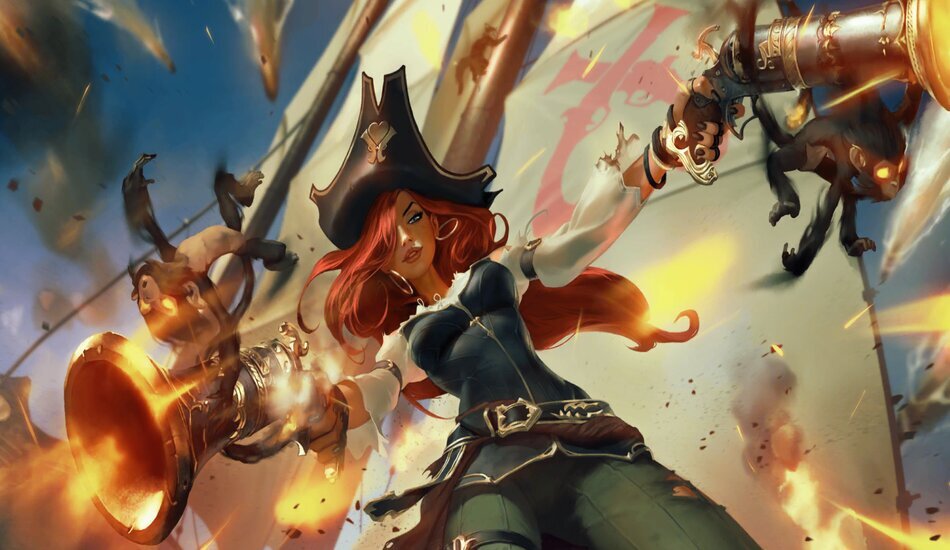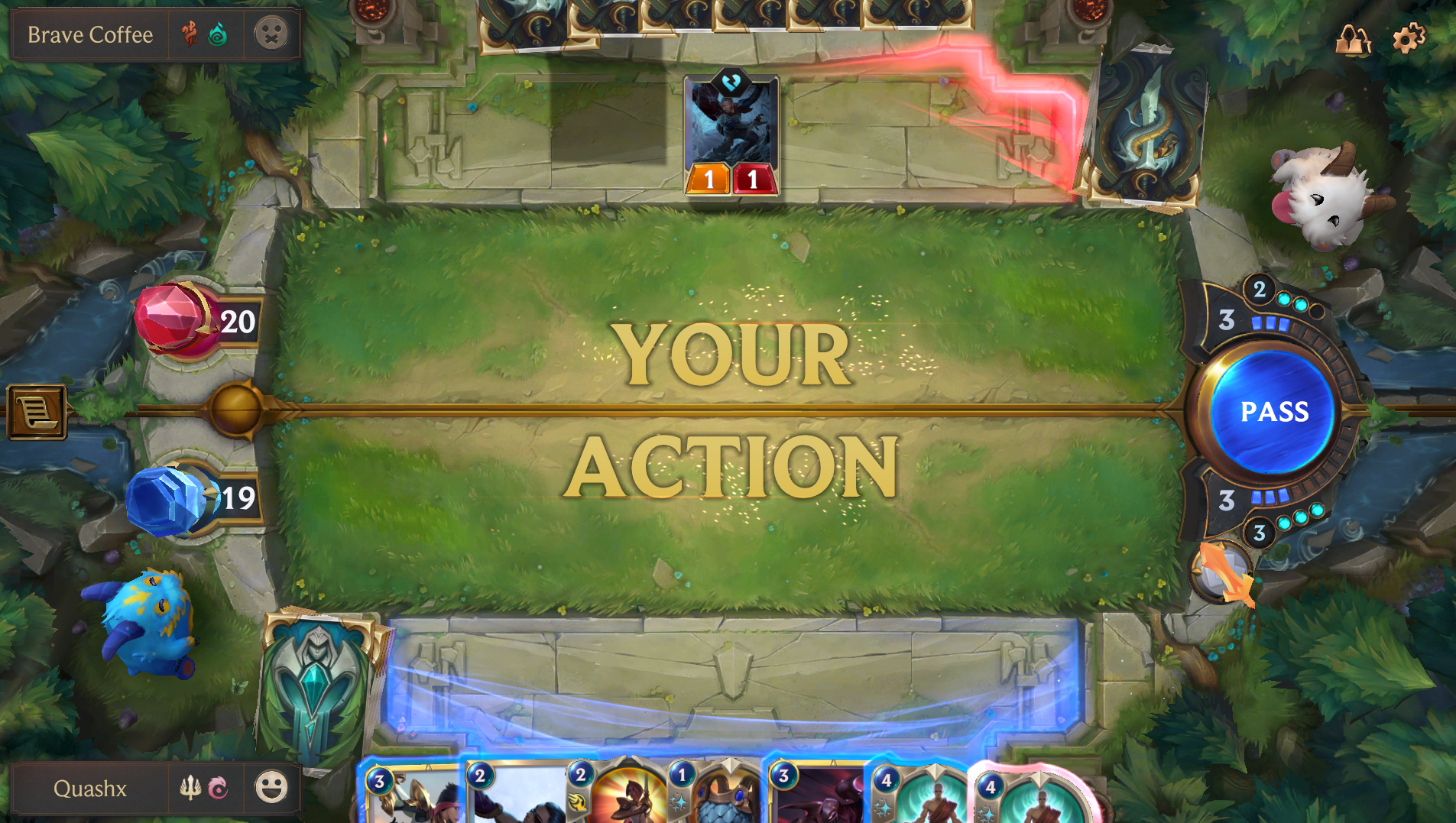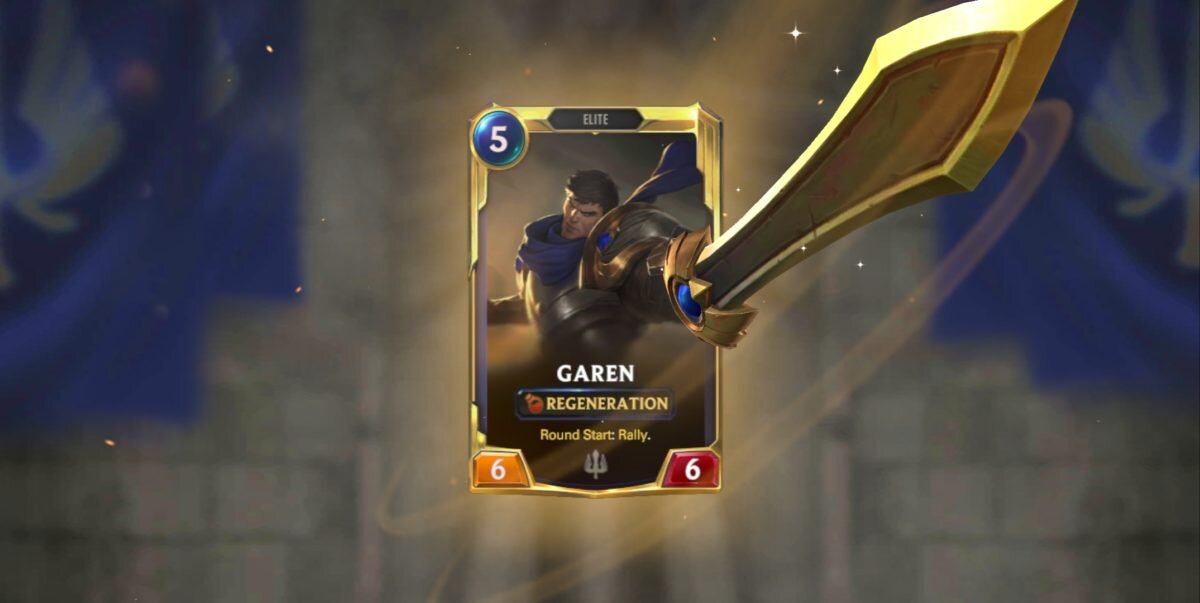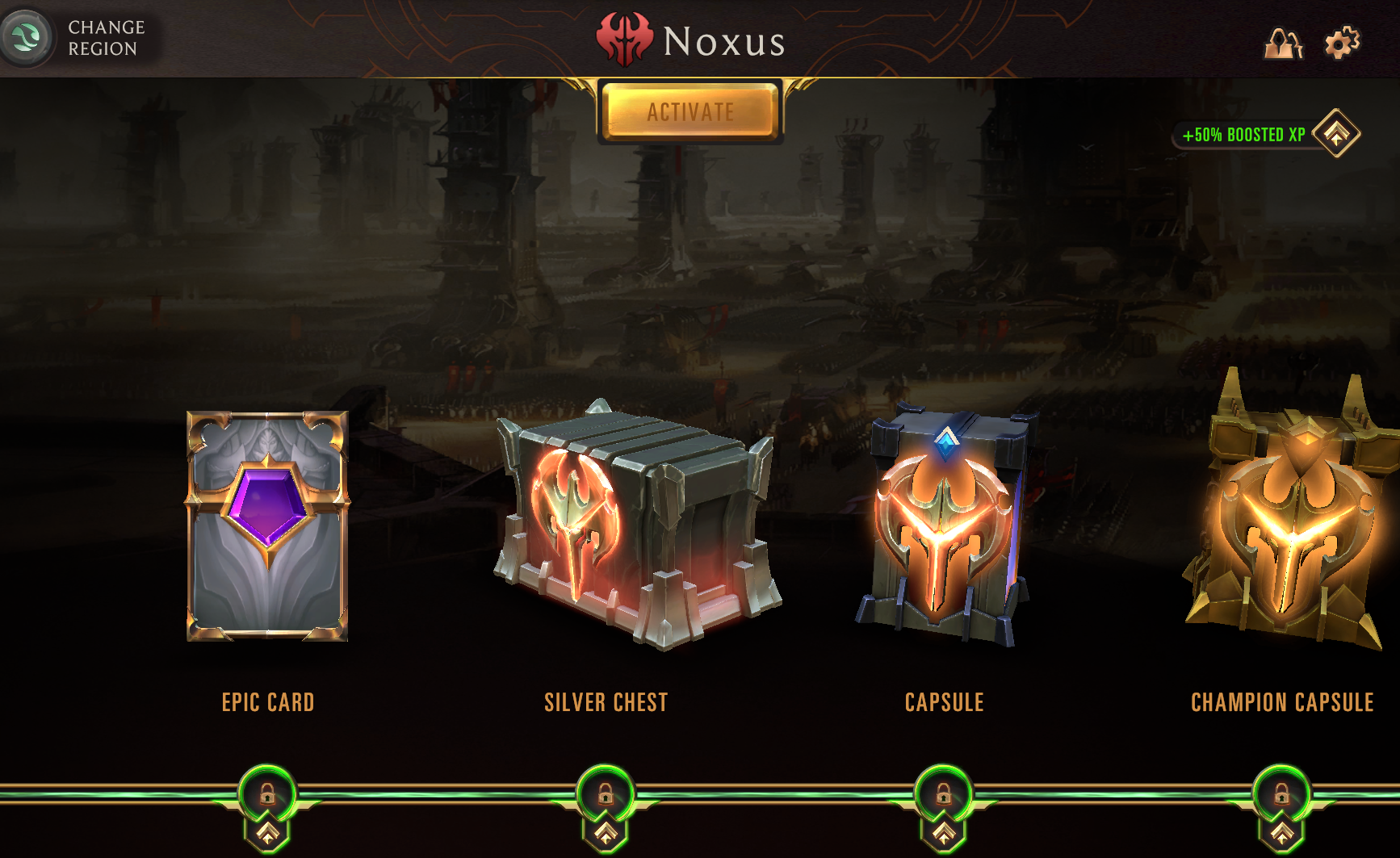Legends Of Runeterra Review - How Generous Of You
/With various projects currently in development, Riot Games is on the move to expand their horizons in the competitive scene. One of their latest efforts, Legends of Runeterra, is officially out worldwide on PC and mobile platforms. This is an online card game that is easy to learn but difficult to master, outfitted with a refreshing progression system; rather than leaning heavily on incentivizing players to spend hard-earned money on a free-to-play title in order to remain competitive. Legends of Runeterra by and large feels like it rewards players with an ever-growing collection of cards per hours spent.
Legends of Runeterra is best compared with Magic: The Gathering, but with game speeds similar to Hearthstone. At first glance, it would seem hard to pick up, but the tutorial and early matches with AI do a good job at explaining the basics in just a short amount of time. Once you understand the basic flow, you’ll appreciate the user interface, as every important piece of information is laid out perfectly.
A potentially soul-stealing timesink
Based on the League of Legends universe, Legends of Runeterra's first batch of cards at launch features only a fraction of all known champions in the famous free-to-play MOBA title. Each card represents a certain region in the LoL world, and there are seven in total that cover specific playstyles for players to mix and match when creating their personalized deck. Shadow Isles, for instance, can swarm the board with cheap allies and feature cards requiring the player to sacrifice their own ally in order to be played. Ionia have cards that can only be blocked by similar types, while cards from the Freljord region have abilities that reduce an enemy ally or champion’s attack power to zero.
Riot Games was able to establish a system that is similar to existing online card games, but they’ve applied twists to the gameplay that capture the essence of its unique universe, so naturally, the Champion cards (representing well-known League of Legends champions) in Runeterra are the strongest you can earn in the game.
On top of the cards’ inherent power, they are unique in their ability to level up if you complete the objective stated in the card’s description. Some of the mechanics are straightforward, while others will require critical thinking to fully utilize the Champions’ power.
The game is filled with bright visualizations to establish the effects of cards in play, and Riot Games goes over the top with flashy animations for each Champion’s level-up. It usually takes about 3 seconds of your time and covers the whole screen, so you can’t miss it, but these interruptions eventually become redundant when you’ve spent many hours on the game and have had to sit through the same animation over a hundred times.
Champion cards are the highest card type in the game, and are naturally the most expensive. But despite the rarity and cost of each card, I never experienced the urge to spend my money to stay competitive.
Who knew a truly free-to-play title could be so refreshing?
The progression to earn cards in Legends of Runeterra has more to do with player choice rather than tossing the dice and praying to the wills of RNG gods.
Don’t get me wrong, Riot Games does provide packs where you can acquire random assortments of cards, but you’ll still get some sort of control over the kinds of cards you’ll earn. Win or lose, you’ll earn experience points each game, and these points will be applied to one of many regions chosen by the player to be leveled up. Each region has their own sets of rewards to earn, allowing players to commit to their progression and lessening the randomness of the types of cards earned. For instance, if you set your experience to the Demacia region, all random rewards earned will be Demacia cards until you choose to change to another region.
I’ve been playing since launch, and this Rewards system helped me to create competitive decks that can compete even at higher ranks in Ranked mode, making Legends of Runeterra one of the most generous free-to-play online card games out today.
To even further increase Runeterra’s emphasis on player choice, Riot Games has implemented the Wildcards system made famous by Magic: The Gathering Arena, the free-to-play online version of Wizards of the Coast’s card game. Wildcards are cards that can be transformed into any kind of card that matches the Wildcard’s rarity. If you have a Champion Wildcard, for instance, you can transform that card into any Champion missing from your collection.
These Wildcards can be earned in each Rewards track as well. If you run out of Wildcards, the in-game currency called Shards provides another option to get a specific card you need. These Shards can be earned through the chests you unlock as you move along your Rewards track.
It felt weird (in the very best way) not being constantly pressured to spend in a free-to-play title, and as I was able to control the types of cards I was earning, I felt like I was being rewarded for my all time spent on the game.
For added generosity, all of the experience you gain is not only added to the Rewards track of your choice, but is reflected in your weekly vault that contains three chests that improve in quality each time you level your vault up. Players are also given a quest to complete daily to earn experience, and these are simple tasks like drawing this many cards, or playing a deck themed to a specific region.
...all wrapped up in familiar packaging
Legends of Runeterra launched with the typical game modes you’d expect in an online card game. You have the normal game mode that matches you with random players, versus AI if you want to practice your skills, and the Ranked mode if you want to be competitive and play with the best in the community. If you’re a player that loves crafting decks, their Expedition mode makes you choose a set of cards that will eventually be your deck in a 7-run gauntlet, and you get to improve the deck as you win games with your creation. There are also Challenges that drop players into a set scenario and task them to win with the provided decks.
With Legends of Runeterra being a free-to-play title, an in-game store is a no-brainer, but as of this writing, what’s shocking is that there’s currently no option to buy chests (packs) with real money. The store is currently filled with cosmetic items, like board design, emotes, card backs, and cute monsters called Guardians that watch the game on your side of the board. You can buy Wildcards, which is the best option if you want to speed up your process of collecting cards.
I see a variety of decks being produced, thanks to the option of having up to two regions represented in a single deck in Runeterra’s first post-release month. As I climbed through the game’s Ranked mode, I discovered that all regions are viable if used correctly, and that there’s a good amount of combinations that can suit a variety of playstyles; whether aggressive, control, or a mix of both, you’ll have many options.
Legends of Runeterra is a satisfying online card game that has the potential to be among the best titles in its genre, but the success of this game will be based on the new cards added in the future and how they balance the game while maintaining a fun environment for the community. After dozens and dozens of cards are added into the game, how friendly will this be to new players then? And will earning cards be just as easy in the coming months? Only time will tell, but it’s good to have yet another viable, time-killing card game.
9/10
Highlights
Highlights
+ Friendly tutorial system that greatly explains the basics of the game.
- Flashy Champions’ level-up animations become redundant after hours of play.
+ A free-to-play title that gives many ways to earn the best cards in the game without spending real money.
+ Robust collection of cards and decks to create competitively, and for fun.
+ Unique draft game mode that will test your deck crafting skills.
What I’ve Played
Reached Platinum rank after 4 weeks of play.
Maxed out the level of the Demacia region while leaving the rest at level 4 or so.
Played all game modes (Challenges, Expeditions, etc.)




















Assassin’s Creed Shadows greatly blends the classic Assassin’s Creed stealth with the RPG elements of recent entries. Its dynamic world, seasonal changes, and improved stealth mechanics make exploration a joy, but Yasuke’s restrictive gameplay, overall story, and a half-baked notoriety system hold it back.